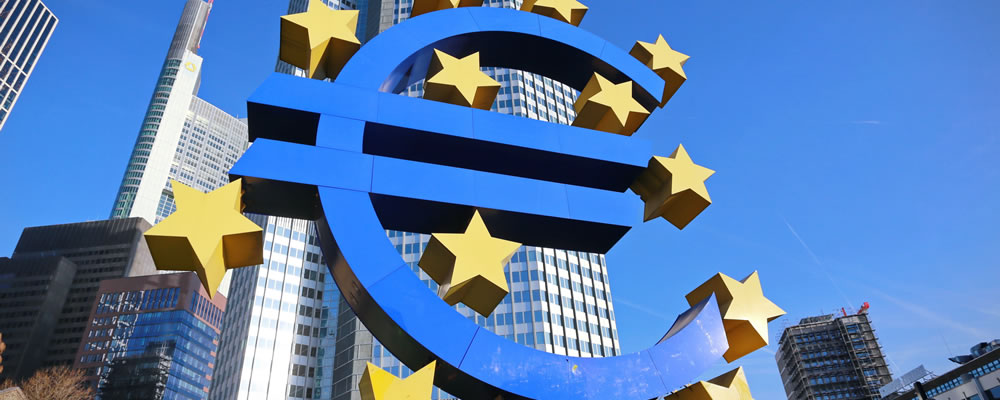Euro to Pound Exchange Rate Volatile with Central Bank and Political News in Focus
Over the past week, the Euro to Pound Sterling (EUR/GBP) exchange rate has seen steep shifts in movement as Euro (EUR) investors await this week’s European Central Bank (ECB) news and Pound (GBP) traders become increasingly focused on bets around Brexit.
Last week saw EUR/GBP open the week at around 0.8962 before surging, and briefly touching on a fresh 2019 high of 0.9047 in the middle of the week.
While EUR/GBP was unable to hold that best level, the pair did still register gains last week overall and ended the week a little higher at the level of 0.8974.
At the time of writing on Monday morning, EUR/GBP was advancing on Brexit jitters once again and trended closely to the level of 0.8995.
Its gains may be temporary though, as markets awaited major ECB news later in the week.
Euro (EUR) Exchange Rates Mixed as Investors Eagerly Anticipate European Central Bank (ECB)
Continued weakness in German data is keeping investors anxious that global trade tensions and slowdown are still impacting the outlook for the Eurozone’s biggest economy.
The Eurozone’s overall signs of resilience have not been enough to keep investors optimistic about the bloc’s economy, and as a result speculation of a more dovish European Central Bank (ECB) has persisted.
With the ECB set to hold its July policy decision and potentially hint at more dovish monetary policy this week, the Euro’s movement is likely to remain mixed as investors react to upcoming data without moving too heavily ahead of the bank decision.
On top of ECB speculation, investors are also jittery on the Euro amid signs of cracks in Italy’s government coalition.
The populist coalition has clashed with the EU on multiple occasions, and the two parties in the coalition are now seeing clashes with each other.
Speculation is rising that Matteo Salvini could call a snap election to split his League Party from its partnered Five Star Movement and capitalise on a rise in popularity. This has caused fresh concerns of instability and tensions between Italy and the EU.
Pound (GBP) Exchange Rates Weaken on Domestic Brexit and Recession Fears
Last week saw broad sharp fluctuations in Sterling, as fears grew that Britain’s next Prime Minister could lead the nation towards a worst-case scenario no-deal Brexit.
Markets have essentially priced in a Conservative Party leadership contest win from Brexiteer Boris Johnson, and have been paying close attention to his comments on Brexit.
Fears of a no-deal Brexit continue to rise as Johnson expresses interest in reaching an EU deal that lacks a resolution on the issue of Ireland’s border.
On top of rising no-deal Brexit fears though, demand for the Pound has been hit by fresh fears that Britain could be about to fall in recession.
According to the NIESR thinktank’s latest assessment of Britain’s economy, there was around a one-in-four chance that the nation may already be falling into recession due to Brexit uncertainty’s impact on economic activity.
NIESR said:
‘The outlook beyond October, when the United Kingdom is due to leave the European Union, is very murky indeed with the possibility of a severe downturn in the event of a disorderly no-deal Brexit.’
Euro to Pound (EUR/GBP) Exchange Rate to Steady Ahead of European Central Bank (ECB)
The Euro’s movement is likely to take focus for the Euro to Pound (EUR/GBP) exchange rate this week, as Britain’s economic calendar is a little quieter and there is a lot of key Eurozone news on the way.
Major Eurozone datasets due for publication throughout the week are likely to influence some Euro movement as investors anticipate the European Central Bank’s (ECB) July policy decision on Thursday.
Tomorrow will see the publication of the Eurozone’s July consumer confidence projections, followed on Wednesday by Markit’s July PMI projections for the bloc, and German business confidence on Thursday.
The PMI data could be especially influential in regards to ECB easing speculation if it surprises investors. If the Eurozone’s economy has been more resilient than expected, speculation of a more dovish ECB could lighten,
Of course, the biggest event of the week will be Thursday’s ECB decision. The Euro to Pound (EUR/GBP) exchange rate will also be driven by the switchover of leadership in Britain over the coming weeks.



